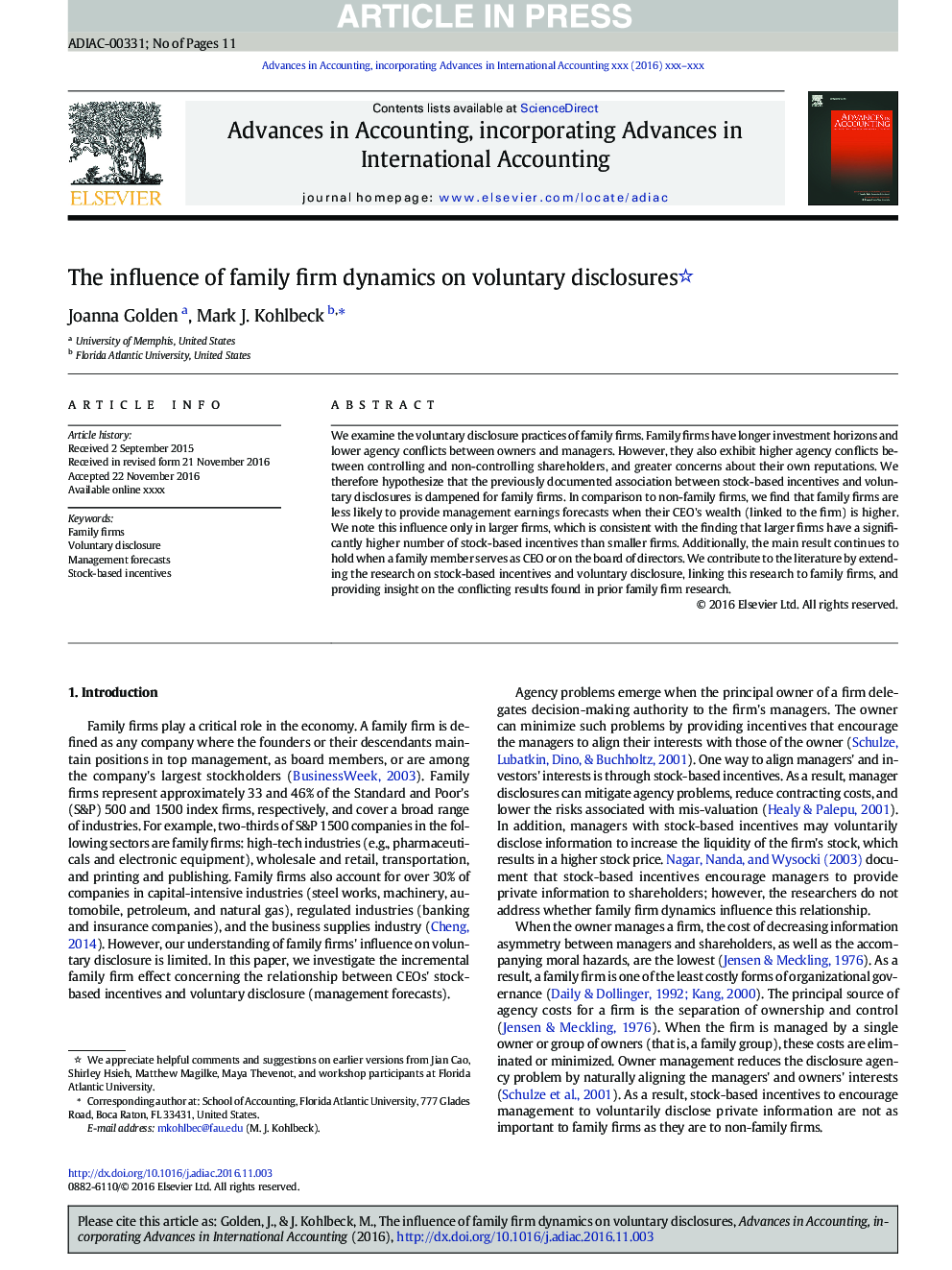| Article ID | Journal | Published Year | Pages | File Type |
|---|---|---|---|---|
| 7339771 | Advances in Accounting | 2017 | 11 Pages |
Abstract
We examine the voluntary disclosure practices of family firms. Family firms have longer investment horizons and lower agency conflicts between owners and managers. However, they also exhibit higher agency conflicts between controlling and non-controlling shareholders, and greater concerns about their own reputations. We therefore hypothesize that the previously documented association between stock-based incentives and voluntary disclosures is dampened for family firms. In comparison to non-family firms, we find that family firms are less likely to provide management earnings forecasts when their CEO's wealth (linked to the firm) is higher. We note this influence only in larger firms, which is consistent with the finding that larger firms have a significantly higher number of stock-based incentives than smaller firms. Additionally, the main result continues to hold when a family member serves as CEO or on the board of directors. We contribute to the literature by extending the research on stock-based incentives and voluntary disclosure, linking this research to family firms, and providing insight on the conflicting results found in prior family firm research.
Related Topics
Social Sciences and Humanities
Business, Management and Accounting
Accounting
Authors
Joanna Golden, Mark J. Kohlbeck,
